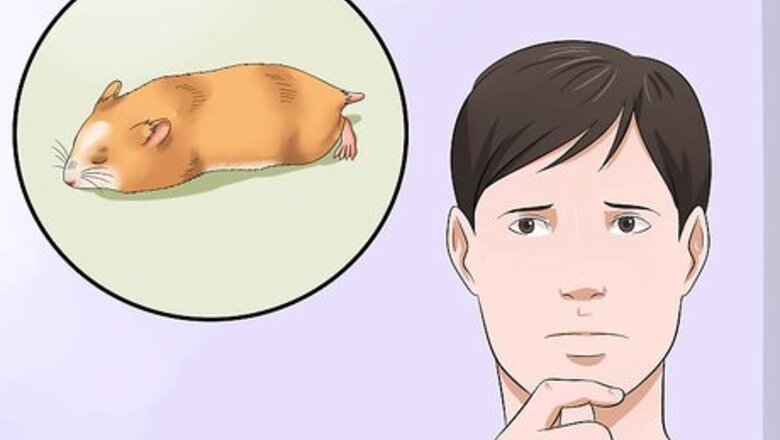
views
Assessing Whether Your Hamster Could Be Hibernating
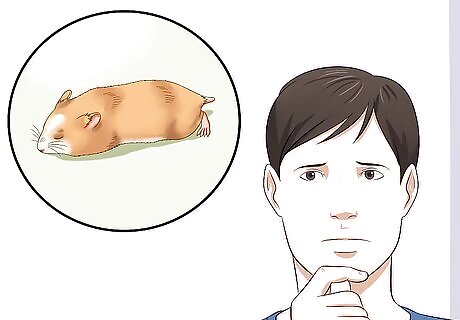
Ask yourself if the stillness is unexpected. Did your hamster seem ill recently? Clues to this might be that it stopped eating or lost its appetite, it was drinking more than usual and you were having to clean out wet bedding more frequently, it smelled bad, it had lost a lot of weight, or its habits had changed radically, for example it had stopped playing on its wheel. These are all indicators of ill health and could indicate your hamster has died. On the other hand, if the hamster seemed perfectly healthy before hand and this stillness is unexpected, it doesn't rule out death but it makes hibernation more likely.
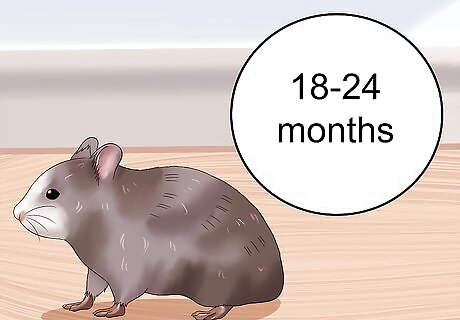
Consider how old your hamster is. How old is the hamster? An average lifespan is 18-24 months, with the odd hamster making it to 36 months. If your hamster is older than this, then it was very elderly, and the chances of it having passed away increase.
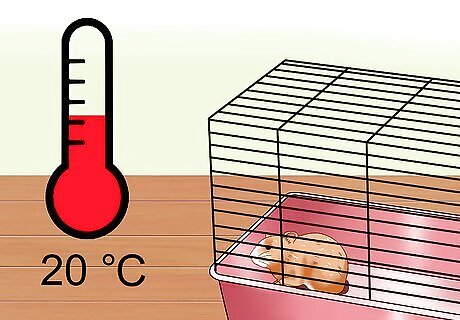
Consider the ambient temperature. Hibernation is temperature dependent. If the air temperature where the hamster was kept is above 20°C then hibernation is not very likely. On a hot day, consider if the hamster's cage is near an air conditioning unit. Air conditioners can kick out extremely cold air, which could cause your hamster to go into hibernation, so don't discount a low air temperature even in sweltering weather.
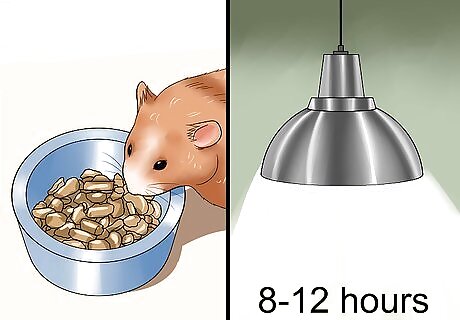
Assess your hamster's access to food and light. Hibernation tends to happen at times when it would be difficult for the hamster to find enough resources to survive. These tend to be associated with harsh winters, when there are low temperatures, short day lengths, and a lack of food. Ask yourself if the hamster has more than 8 - 12 hours of daylight a day and has plenty of food. Scarcity of food teamed with low temperature and short day length could trigger hibernation.
Determining Whether Your Hamster is Hibernating
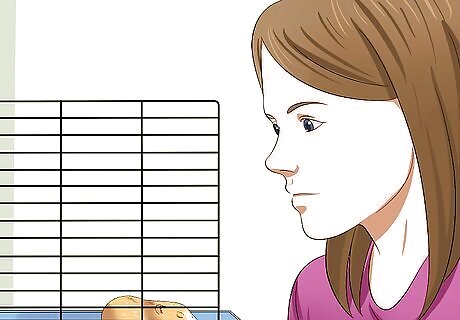
Watch your hamster to see if it's breathing. If hibernation is a possibility, watch your hamster very closely for several minutes. Look for signs of breathing. Be aware that the whole of the hamster's body systems slow down, so the breathing rate can become as slow as one breath every two minutes. Watch the hamster for more than two minutes because it's possible to blink and miss that one breath. If you watch for just two minutes, and you could wrongly assume the hamster is dead.
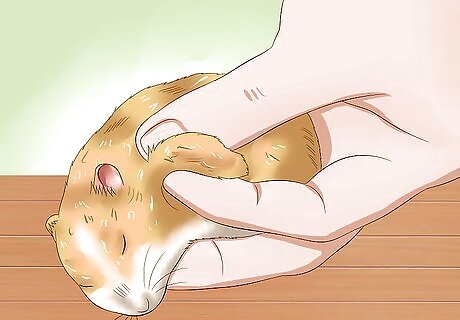
Try to detect a heartbeat. If you don't see the hamster breathing then feel for a heartbeat. The heart rate of a hamster can slow down significantly. It can be just four beats a minute, or one beat every 15 seconds. It can be difficult to find a hamster's heart beat because they are so tiny. To do this use your forefinger and thumb of one hand and place them on either side of the hamster chest just behind its elbows. Apply gentle pressure, sufficient that you could hold the hamster this way to stop it running away but without hurting it. Wait patiently and feel for a heartbeat against your finger tips.
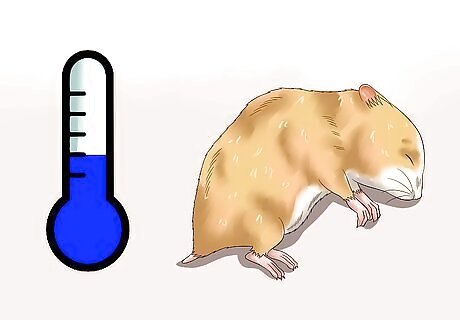
Ignore body heat as an indicator between hibernation and death. Don't worry it the hamster feels cold. This doesn't automatically mean it's dead. The hibernation process is triggered by chilling and its body temperature will drop to match the environment.
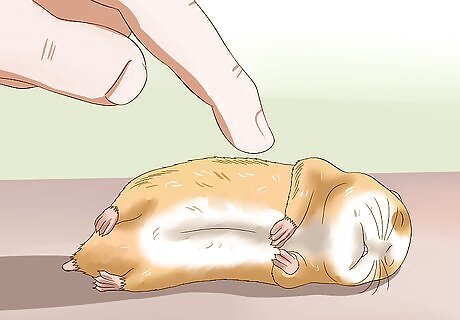
Check the hamster's body for stiffness. One difference that indicates death is rigor mortis. If the hamster feels stiff and hard like board, then he may have rigor mortis, which is a sign of death.
Waking a Hamster Up From Hibernation
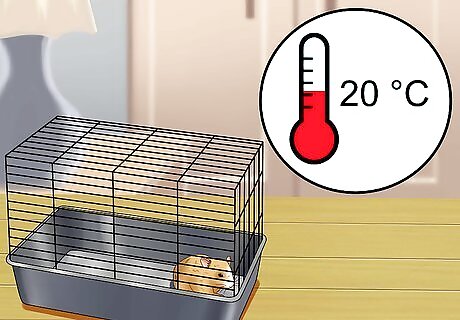
Put a hamster that you suspect is hibernating in a warm room. The room temperature should be around 20°C. Wait for 2 - 3 days. If the hamster is merely hibernating it should wake within that period. If it doesn't wake up, then more obvious signs of death should occur such as an unpleasant odor and rigor mortis. A hibernating hamster should not smell unpleasant. Experts advocate this as the preferred option of waking a hamster because it closer simulates the natural waking process and places less strain on the body's blood glucose reserves than a "rapid reboot." Make sure plenty of food and water is available for the waking hamster.
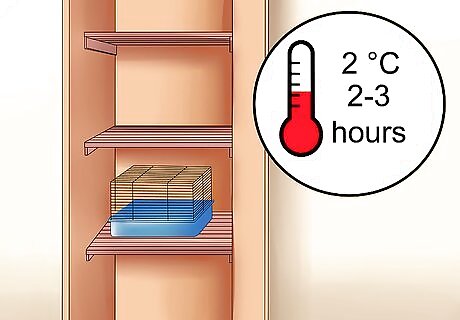
Warm the hamster up, relatively rapidly. Instead of warming up your hamster slowly in a warm room, you can warm it more rapidly. Put the hamster, in its cage, in a warm place such as an airing cupboard. Depending on the temperature, the hamster may wake within 2 - 3 hours. Remember to keep the hamster in a secure container, because if it is just in a cardboard box it may wake and chew its way out! Another idea is to stand the cage on a hot water bottle to radiate heat up through the floor of the cage. Ensure the hamster has food and water, because it will use up valuable energy reserves to wake up, and these need to be rapidly replaced or the hamster could suffer liver damage.
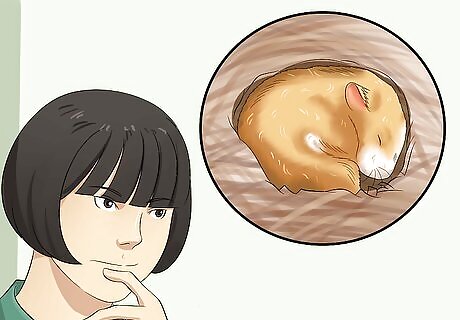
Remember that hibernation is a natural process. If your hamster was hibernating, be aware this is a natural process, from which it recovered. Unless you are concerned, if the hamster is back to hits usual self - eating, grooming, and running in its wheel - there is no specific need to get it checked by a veterinarian.
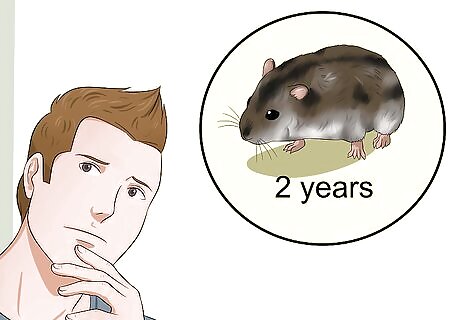
Remember that hamsters have relatively short lives. If none of your attempts help to wake the hamster up, it has probably passed away (unless, of course, you've determined that it is indeed breathing and/or it does have a heartbeat). Remember that hamsters generally have very short lives and their time might unfortunately be up. Eliminate all other possibilities first, but then you may need to accept that your hamster has died.
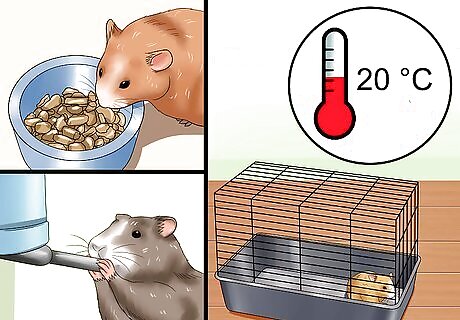
Prevent the hamster from hibernating in the future. So that you don't have to suffer this anxiety and worry again, make sure the hamster is always in a room above 20°C, that he has 12 hours + light a day, and plenty of food and water. That way his body never thinks he has to conserve energy and hibernate.

















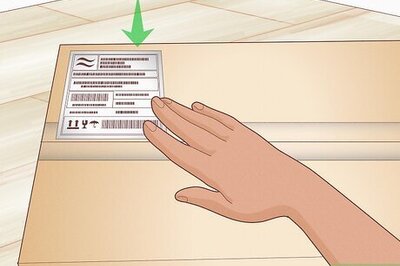

Comments
0 comment